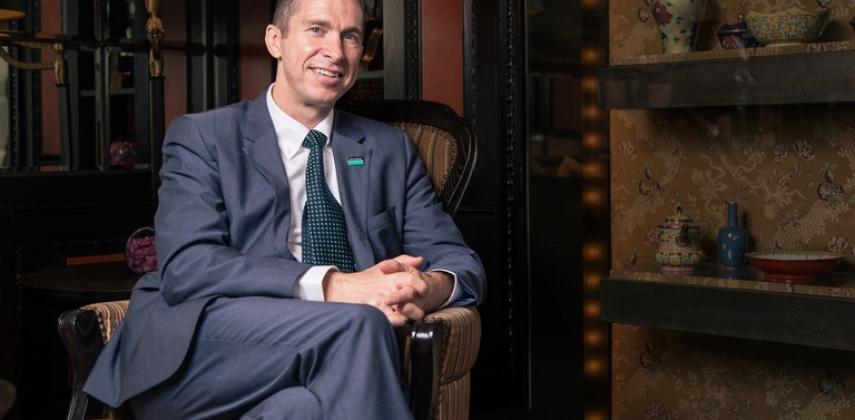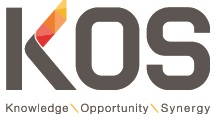A passion for rugby helps Jeremy Burks of Dow Corning China connect with staff
Jeremy Burks, president of global silicones supplier Dow Corning China, didn’t find it difficult to adjust when he moved from South Korea to China in 2009 because of the great similarities between the two countries.
“In both places, work tends to be a fun place,” he says. “People are lively, interested and very engaged. Going to work is always a real pleasure in both countries.”
But he also noticed differences. “Korean people work very hard and for very long hours. They socialise together and work takes over life. In China, there’s still more of a distinction between life and work,” he says.
“In Korea, hierarchy is quite important because of the Confucian background. That’s breaking down a bit, but it’s still there. You’ve got a little bit of that in China, in terms of an expectation that the boss knows everything and makes the decisions.”
Burks joined Dow Corning in the UK in 1987. After moving to Asia in 2004, he soon learned to be very clear whenever laying out his ideas.
“In South Korea, I would spend the morning dishing out ideas and then in the afternoon I’d find everybody busy working on those ideas. They would follow those ideas because they’d think they were directions and not just ideas. Actually, I wanted people to say: ‘That’s a bad idea!’”
Burks views China as unique for its ability to have sustained its rapid growth for many years despite its huge size. However, he considers the market shift from being heavily export-driven to being focused on domestic consumption as one of the company’s biggest challenges.
“We need to get ready for that because it will bring a lot of changes. Dow Corning is heavily driven by innovation, so when a new challenge comes up like that, that’s the kind of thing that makes us interested. We like to think that we can be a valuable contributor to that,” Burks says.
Last year, even though China recorded its slowest GDP growth since 1999, Dow Corning’s business accelerated. Further sustaining this growth requires the development of local talent, which the company is already doing in several ways.
“First of all, we try to attract really good people,” Burks says. “We pay a lot of attention to making sure that people know about Dow Corning through outreach work with universities and our presence in various organisations and chambers of commerce.”
After being hired, employees at Dow Corning have a career-development plan laid out for them. “It’s an ongoing document that’s used to help facilitate conversation between manager and employee,” Burks says. “What would be the kinds of job they would like to be considered for? And what is the best way to put them in the front line for those kinds of jobs?”
He believes that the greatest portion of career development comes not from training courses, but from on-the-job experience. “There’s a ratio of 10-20-70. 10 per cent is from training, 20 per cent is from coaching and 70 per cent is from on-the-job experience. What we’re trying to do is make sure that people have opportunities to really develop themselves through their job,” he says.
Three “China’s Top Employer” awards from the international Corporate Research Foundation Institute over the past five years prove the effectiveness of this approach.
By his own admission, Burks’s management style is variable. It is important, however, for his work to be fun. “You don’t ever need to be too serious,” he says.
In analysing business situations with subordinates, Burks stops himself from always giving the answers. “Eventually, you must allow people to arrive at the answer. You’ve got to have the patience to do that. And you have to enjoy that process rather than being very frustrated that people aren’t getting to it quickly,” he says.
He feels he has a responsibility to pass his business experience to others and is determined that Dow Corning be even more successful after he leaves the company. “I don’t want to be crucial to the organisation. Actually, I want to be kind of redundant,” he says.
Unlike many executives, Burks has climbed the career ladder without a role model. “I don’t really have role models, but I love to hear what other people are doing. Most of the time, I’m just collecting ideas from different people and putting them together,” he says.
An early social media advocate, Burks believes he’s only the second person in Dow Corning to have an internal blog, which he began in 2005. For the first few years, Burks blogged actively about business, the economy, politics, family life, personal experiences and observations, and typically posted up to eight times a week. The blog posts became convenient conversation-starters wherever he went.
He noticed that during critical periods, such as the recent global recession, his people tended to visit the blog more often. “During the early stage of the financial crisis, our people knew that I would be posting about my thoughts on what was going on. I saw the readership pick up,” he says.
He also got on Twitter as early as 2007, but he doesn’t use it anymore because the service is blocked in China.
Besides his work at Dow Corning, Burks is the chairman of the Association of International Chemical Manufacturers (AICM), the chemical industry association for multinationals in China that is driving best practices in environmental health and safety through the Responsible Care code. His active community involvement also earned him a Silver Magnolia Award from the Shanghai Government in 2012. As if that wasn’t enough, he’s also the father of five children.
“You can add all of those things up and I’m just really busy. The biggest challenge is to manage all that, but it’s not something that is depressing. I could be back in England and living a boring life. But I’m not,” he says.
Despite his hectic schedule, Burks still manages to find the time to play his favourite sport, rugby – albeit the non-contact “touch” version. His passion for rugby is well-known in his company and it not only serves to keep him fit, but it is also an easy topic for employees to start a conversation with him.
Last November, Dow Corning’s “Real Teal Deal” team competed in the corporate division of the Shanghai International Touch Tournament. Burks is also helping introduce the sport to Chinese schools.
He sees some parallels between playing touch rugby and managing a company. “Everybody’s got a role,” he says. “The team has to work together. There’s also a kind of shared responsibility. If anyone makes a mistake, the rest of the team has to cover.”
As in business, the value of good communication is also underlined in touch rugby. “You only have a short time when you play a match,” he says. “If there are any problems, you’ve got to voice them openly and honestly, during the match or at halftime. Otherwise, you lose.”
Though there’s interest within the company in joining the touch teams, some employees are candid enough to admit that they have jumped into the sport “because it’s good for [their] career”.
Burks eventually had to promise them that playing touch for the Dow Corning team wouldn’t help their career – but that it wouldn’t hurt it either.
WINNING THE SCRUM FOR SUCCESS
Burks’ tips on getting to the top:
SAFETY “Good safety leads to good reliability. Good reliability leads to good quality. If you get safety, reliability and quality right, then your cost is probably right, too.”
PATIENCE “For a foreigner in China, the trick is patience. When issues arise, most of the time your first impression is wrong. Your second impression is also probably wrong. The third one could be right, but it is still likely to be wrong. You just have to have the patience to sit there and work it out.”
PAY ATTENTION “Shut up and listen to people.”
MODESTY “I know that I don’t know very much. The longer you know that, the more you’ll be aware of how little you know.”





